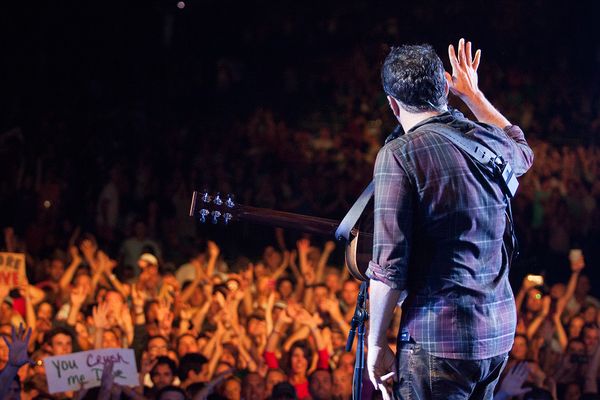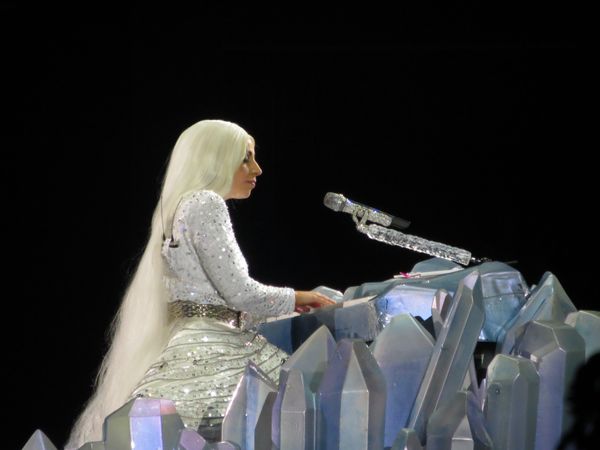Bon Iver released 22, A Million a few days ago, the first album in five years. The group has already sold out venues for the upcoming tour, both in the United States and abroad, and the world is not pleased—WE DEMAND MORE TICKETS. Their newest album, far different from For Emma, Forever Ago, takes a turn towards uncertainty. And even with all the synthesizers and abnormal instrumentation, or perhaps because of them, we are able to sense the emotions behind Justin Vernon's search for self-understanding and his encounter with inevitable doubt, which he imparts ingeniously with his own sort of lexicon. A double-digit number representative of Vernon himself and a number exponentially greater, 22, A Million is a project reflective of Vernon's relationship with himself and the world.
While the entire album is deserving of acclaim, one track, in particular, struck a chord with me: 715 – CRΣΣKS. It embodies all that Bon Iver’s latest album is—strange, emotive, at times truly devastating, and most of all, utterly brilliant. It is not just about the lyrics for Vernon; the eeriness of his music tells us more about the artist’s underlying feelings than any arrangement of clustered phonemes. That being said, Vernon’s lyricism is nothing short of unique. It is why I have chosen to retell 715 – CRΣΣKS in a simpler fashion. I pray my interpretation (and it may not be the correct or only one) does his words justice:
* * * * *
It is no secret that Vernon often left to be in solitude in order to find inspiration for his works (715, an area code of Wisconsin). Listening to this track, however, we slowly begin to understand that it may not have been the best for him. The walk down the “yellow road” towards dreams and excitement appears to be perhaps no more than a path of greed and selfishness. “Leaving wasn’t easing/ All that heaving in my vines:” He is the vine, in need of support, and he doesn’t have that wherever he is, alone. He’s toiling with Christ’s blood --> wine --> alcohol. He’s drinking, remembering a deeply passionate physical love, a love he at that time had in his grasp, just before “second sun [came] to pass” and time ran out. Even without instruments, we feel the strength of his emotion with the intensity of his voice, just before it heartbreakingly softens “Oh, then how we gonna cry?” for love is not something he feels is needed. The sense of abandonment Vernon alludes to with his reference to the Old Testament, being “left here in the reeds” like Moses, makes us wonder if he’s symbolizing his spiritualism, last relationship, or both. Whichever it is, he’s trying to get his “feet out from the crease” and escape the reeds he’s been stuck in all this time.
Agonizingly, Vernon concludes his song by crying out to someone he so heavily relies on who is now turning his back on him. Or maybe, he is simply begging this person to come his way and save him: “God damn, turn around now/ You’re my A-Team.”




















